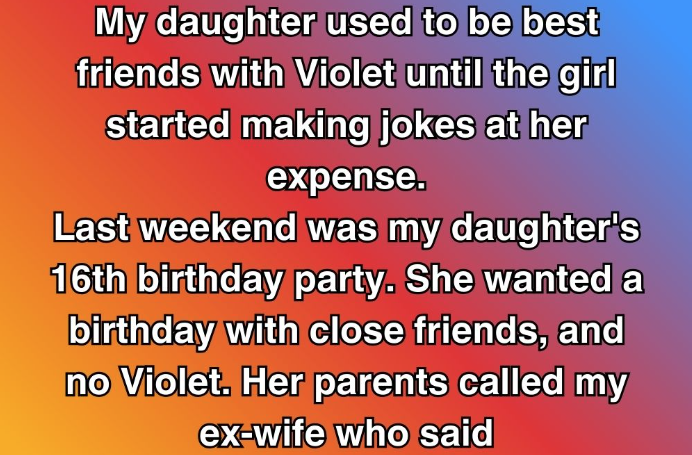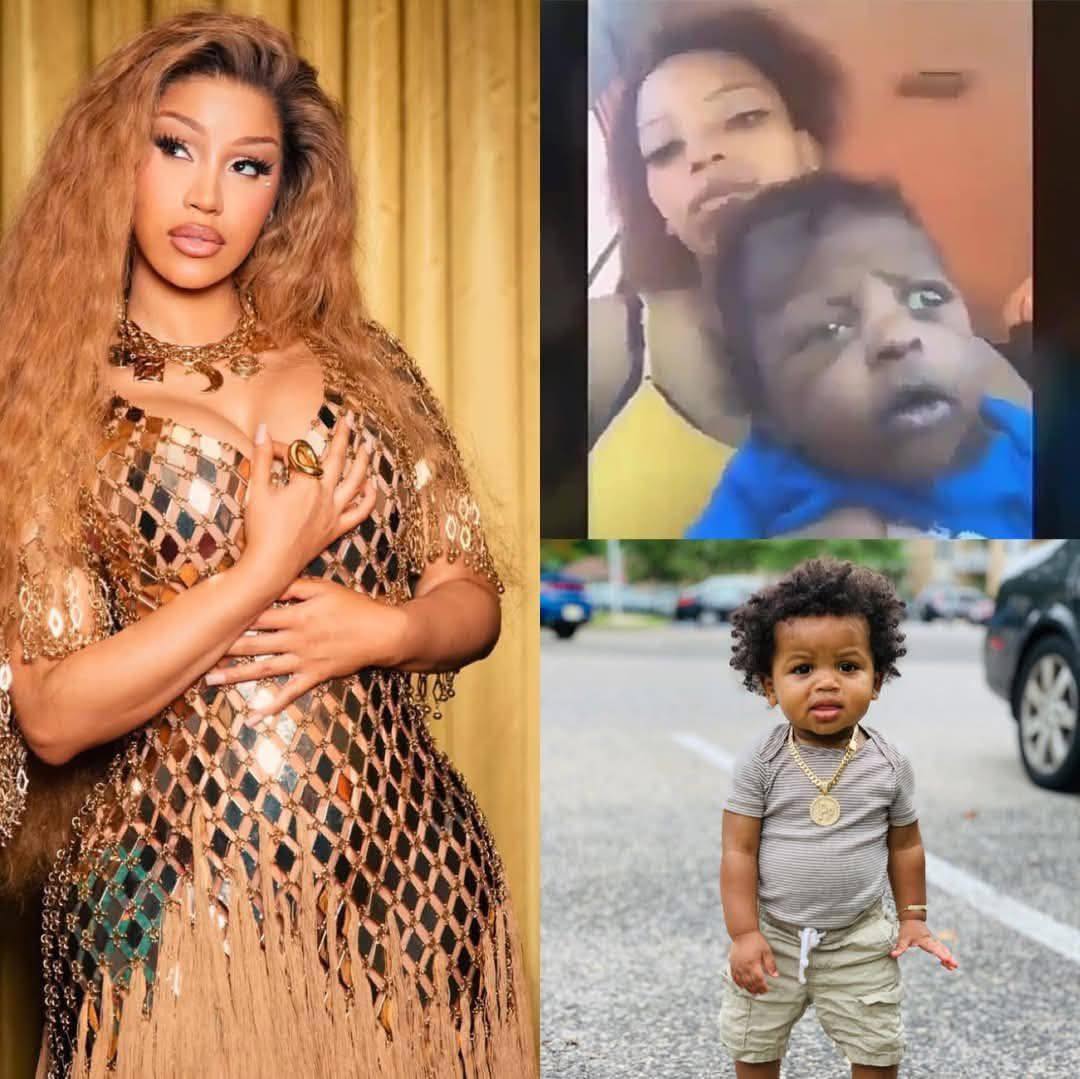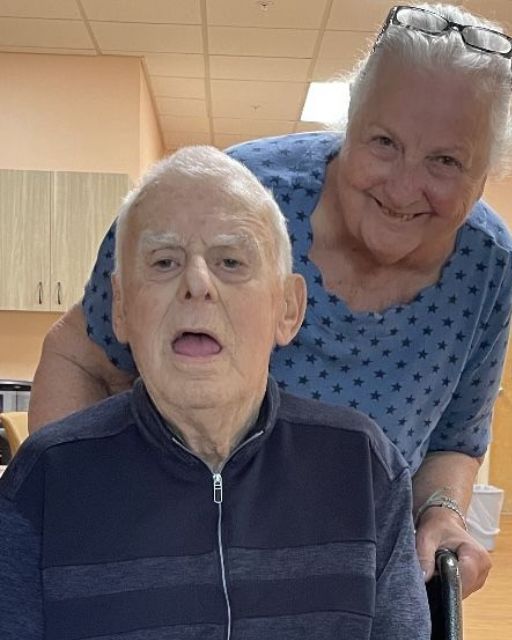Liane and Violet shared a deep friendship that began in second grade and lasted through their freshman year. Their bond was filled with joyful moments—building a glittery volcano for the science fair, laughing through late-night video calls, and once teaming up as a two-person llama for Halloween. Those memories painted a picture of a friendship that seemed unbreakable.
But over time, Violet’s behavior shifted.
The change came gradually. It started with small gestures—eye rolls when Liane shared her enthusiasm, subtle remarks about her outfits. Then the comments grew sharper. During lunch, Violet teased that Liane resembled a “Pinterest fail.” In a group project, she questioned Liane’s understanding in front of others, despite Liane’s quiet intelligence. Each jab cut deeper.
The breaking point arrived last spring. Violet posted a TikTok video reenacting “types of people at parties,” with one character unmistakably mimicking Liane—complete with a fake stutter and exaggerated laugh. The video spread quickly through their school, leaving Liane humiliated. She sat on the couch, phone in hand, and declared, “I’m done.”
When Liane’s 16th birthday approached, she set a firm boundary: Violet was not invited. She envisioned a simple celebration with ten close friends, a backyard movie night adorned with fairy lights, a fire pit, and a taco bar. My girlfriend Mila helped hang the decorations, and Liane’s cousin played DJ. The evening glowed with warmth and authenticity, exactly as Liane wanted.
Then Violet’s parents, Rena and Theo, entered the picture.
Rena left a voicemail that I replayed in disbelief. She mentioned hearing about Liane’s “birthday gathering” through my ex-wife, Angela, who had brushed off their inquiries with, “It’s not my party to plan.” Rena’s message was polished, almost scripted: “Violet hasn’t received an invitation, and she’s deeply hurt. Excluding someone on a milestone birthday is unkind and socially harmful. I hope you’ll reconsider.”
I didn’t respond. Instead, I spoke with Liane.
When I told her about the call, her expression flickered with worry before turning resolute. “You’re not going to make me invite her, right?” she asked.
“No,” I assured her. “This is your day. You decide who’s there.”
She nodded, and that seemed to settle it.
The party arrived, vibrant and joyful. Liane sparkled in her lavender jumpsuit and glitter sneakers. I was grilling quesadillas when Mila approached, her face tense. “There’s a woman at the gate. Says she’s Violet’s mom.”
Rena and Theo stood at the entrance, uninvited. Rena, dressed in a crisp blazer, wore a strained smile. Theo sized me up as if evaluating a business deal. “We were in the neighborhood,” Rena said smoothly, as if dropping by a casual event. “Thought we’d stop by to wish Liane a happy birthday.”
I stood firm, partially blocking the gate. “I appreciate you thinking of her, but Liane chose to celebrate with close friends only.”
Rena’s smile tightened. “She and Violet were close for years. We taught them not to discard friendships.”
“That’s not what this is,” I replied evenly. “If Violet’s feeling left out, maybe ask why her actions pushed people away.”
Rena’s composure wavered. “So she’s ostracized now? Over teenage disagreements? What example are you setting?”
I stepped closer. “That no one has to tolerate mistreatment.”
Liane appeared behind me, her voice calm but steady. “Hi, Mrs. Demir. I hope Violet’s okay. But I don’t want her here.”
Theo let out a scoff. “Unbelievable.”
Liane didn’t waver. “I’m not angry anymore. I just want peace.”
Her words carried a wisdom beyond her years. Rena’s expression softened, but only slightly. “You won’t even try to resolve this?” she pressed.
“I tried months ago,” Liane said simply.
Silence hung in the air, broken only by laughter from the backyard. Rena sighed. “We’ll leave.” But as they turned, she added, “You’ll regret this someday. High school drama fades, but kindness endures.”
They walked away. I felt a mix of anger and unexpected pity.
Later, as the movie played and Liane’s friends laughed around the fire pit, I asked how she felt. “Relieved,” she said. “And a little proud.”
I shared her pride, but the story continued.
Weeks later, Mei, a mom whose daughter Priya attended the party, sent me a message. Violet’s mom was planning a “social get-together” for the girls who had been at Liane’s party, calling it an “inclusive mixer.” The intent felt transparent.
Liane learned about it through group chats. Initially, she brushed it off, but then Priya shared screenshots of Violet’s texts, mocking Liane’s party as “the bland girl bash” and criticizing Mila’s decorations. The words stung Liane more than she admitted.
The mixer took place, but it faltered. A few girls attended out of obligation, but the event lacked warmth—no music, forced smiles, and Rena’s attempt at a “girl empowerment” speech fell flat. Violet barely spoke.
Then, Violet’s old TikTok—the one mocking Liane—resurfaced. Someone paired it with a clip from two years prior, where Violet had called Liane “the smartest, kindest person I know.” The contrast went viral, but this time, the comments questioned Violet’s shift to cruelty. Her attempts to delete it couldn’t stop the spread.
The fallout was quiet but real. Violet’s “empowerment” narrative crumbled against her actions. Over time, Liane’s friends gravitated back to her, drawn to her authenticity.
Months later, at the grocery store, I heard a hesitant voice. “Mr. Oliveira?”
It was Violet, looking worn—her usual polished style replaced by a hoodie. “I know you probably hate me,” she said. “I want to apologize. To you. To Liane.”
I stayed quiet, letting her continue.
“I was cruel,” she admitted, fidgeting with her sleeve. “I thought it was funny, but it wasn’t. Now I’m… really alone.”
“Have you told Liane?” I asked.
She nodded. “She didn’t respond.”
“That’s her choice,” I said. “And it’s okay.”
She looked close to tears. “I know.”
Then, in a surprising move, she apologized to Mila, who had just joined us with a box of taquitos, for mocking her decorations. Mila accepted it with grace.
“I’m trying to change,” Violet said.
It wasn’t a complete turnaround, but it was a step.
Liane eventually saw Violet’s message. She didn’t reply immediately. Days later, she told me, “I won’t be her friend again, but I’m glad she apologized.”
I asked if she felt better.
“Yeah,” she said. “Because I realize it was never about me. She was struggling, and I was an easy target.”
That insight stayed with me. People sometimes hurt others when they’re grappling with their own pain. But boundaries aren’t about punishment—they’re about self-respect.
Liane didn’t seek revenge or drama. She stood firm, and the truth revealed itself in time.
The takeaway? Kindness doesn’t mean enduring harm. It means recognizing when to step away and trusting that life will sort out the rest.
If this resonates, share it with someone navigating their own boundaries. Sometimes, the strongest choice is to say, “No more.”
💬 Like & share if you believe standing firm with grace is true strength.




